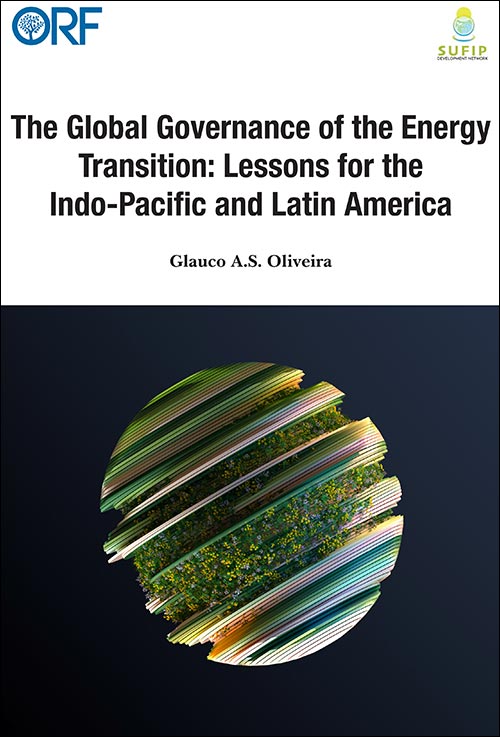Throughout the week, the LTTE suffered huge losses in men and material and was finally ousted by the state armed forces from Pudukudiyiruppu, the last of the towns it captured in Mullaitheevu.

Sri Lanka
< class="maroontitle">LTTE thrown out of its last bastion
Throughout the week, the LTTE suffered huge losses in men and material and was finally ousted by the state armed forces from Pudukudiyiruppu, the last of the towns it captured in Mullaitheevu. The defeat of the separatist forces is the result of a long and hard struggle put forth by the Sri Lankan armed forces and the common men alike. In fact, it was the army’s confidence and self-belief that last week inspired Sri Lankan government to claim that their victory over the LTTE is just 30 minutes away.
Last week witnessed the injuring of several of key LTTE leaders which included its intelligence chief Pottu Amman and Prabhakaran’s son Charles Anthony. Several of their top rung leaders were reportedly killed along with more then 400 of the LTTE cadres in a 20 sq.km of area under their control. LTTE chief Prabhakaran, his son and Pottu Amman is believed to be hiding among the civilians in No Fire Zone along with the remaining 500 cadres. Security forces found a damaged bullet proof limousine during their search operations which was believed to have been carried Prabhakaran to a safe zone.
No ceasefire call has been made by the LTTE though Sri Lankan president Mahinda Rajapaksa once again asked the LTTE to disarm and negotiate.
Nepal
< class="maroontitle">Parties propose views on future government system
The major political parties have initiated the process of drafting the new Constitution by submitting their views on Nepal’s future government system to the Constitution Committee (CC). The Unified Communist Party of Nepal (Maoist), leading the present coalition has proposed for a Presidential form of government. The Madhesi Janaadhikar Forum (MJF), too, has endorsed the Presidential form of government. However, the CPN-UML, Nepali Congress (NC) and few other parties proposed for a parliamentary system where the Prime Minister will be the executive head, elected by the parliament and President will remain as ceremonial head of the state.
The NC argues that the new Constitution should ensure multiparty parliamentary system, independent judiciary including human rights and press freedom. On the issue of federalism, the NC is for delineation of autonomous provinces on the bases of geopolitical conditions, demography, natural resources, economic and administrative possibilities. However, the Maoists are for federalism based on ethnicity and region. On the judicial system, the Maoist proposed for a three-tier judiciary while the UML proposed for a four-tier system. Interestingly, the RPP-Nepal, a lone staunch royalist party, has demanded for a provision of referendum in the upcoming Constitution to decide on the issue of abolishment of monarchy and secularism. Analyzing the situation, it appears that the parties continue to differ on several important issues of national interest. Apparently, the issue of monarchy and secularism has gained momentum following the political parties continuing failure to bring political stability. It further gained strength following the fear of the Maoists trying to turn the country red and moving towards “dictatorial rule”.
Bangladesh
< class="maroontitle">India-Bangladesh joint border talks
The 29th Border Coordination Conference between India’s Border Security Force (BSF) and Bangladesh Rifles (BDR) took place in the week at New Delhi. M L Kumawat, Director General of BSF headed the Indian side, while Maj. General Mainul Islam, Director General of BDR led the Bangladesh side. During the three day long conference, both sides stressed the need for enhancing better cooperation and understanding between the two border forces to deal with complex range of issues on the Indo-Bangladesh border. A whole gamut of issues were discussed including border management, illegal infiltration, construction of fences and border pillars, smuggling and cross border crimes.
However there was disappointment, as no concrete assurance came from the BDR in resolving contentious issues like camps operated by Indian insurgent groups and presence of militant leaders in that country. Bangladesh has been accused of providing safe haven to northeast insurgent groups and many leaders of these groups are reported to be in that country. NE groups are also running their training camps there. India has been urging Bangladesh to take action against them, but, that country often denied such allegation. However, with the new government coming to power on January 2009, the hopes of Bangladesh would take action against such groups has risen in the horizon, as it has declared not to allow its soil to be used for anti-India activities.
Also there was some positive outcome, mainly, BDR Chief appreciating India for its role during the BDR mutiny in February this year. He expressed his gratitude to India for not allowing disgruntled BDR soldiers to cross border and enter India. Meanwhile in reciprocation, BSF Chief assured Bangladesh that rebel BDR soldiers will not be allowed in India in future also.
Maldives
< class="maroontitle">9 Maldivian Jihadis arrested in Waziristan
Last week witnessed the arrest of 9 Maldivian jihadis from the fundamentalist Taliban-infested area of Waziristan. Osama bin Laden’s Al Qaeda is also believed to have strong presence in the area bordering Afghanistan. All the Maldivian nationals were arrested by the Pakistani authorities though no details were being made available on which jihadist group the men were involved with and who had arranged for their recruitment in the Maldives. Out of the nine persons arrested, one of them is said to have a hand in previous year September’s Sultan Park bombing which was deliberately carried out to attack non-Muslims.
There have been concerns regarding the Maldives being used by some Islamic terror groups since 2006. Even before that, Lashkar-e-Tayyeba’s front organization Idara Khidmat-e-Khalq was instrumental in providing large-scale humanitarian assistance to the Tsumani hit southern atolls of the Maldives in 2005. In 2007, a video tape was found which was reportedly being issued by al Qaeda to persuade young Maldivians to join the forces of Jihad.
At present, there are as many as 40 Maldivians studying in Pakistani Madrassas. During his first-ever visit to India, Maldivian president Nasheed ‘Anni’ made an appeal to Indian educational establishments to open their doors for the Maldivian students in order to prevent them from joining such fundamentalist institutions in other neighbouring countries.
Pakistan
< class="maroontitle">Terror haunts Punjab
The two terrorist attacks in quick succession in Punjab heightened fears of the Taliban’s increasing hold over Pakistan. First the coordinated attack on the police academy in Lahore and then a suicide bombing of a posh market in Islamabad left people shaken and wondering about the onslaught of terrorism and the inability of the state to prevent them. Both the attacks were owned up by Baitullah Mehsud, head of Tehrik-e-Taliban Pakistan, an umbrella organisation of militant organisations in Waziristan and other areas in FATA. Mehsud has previously been accused of killing former Prime Minister Benazir Bhutto and carrying out the Marriot bombing besides several suicide attacks in the country. Mehsud, in fact, boasted about his plans to attack the White House in Washington DC. These attacks, and the broadcast of a videotape of a young girl being flogged by the Taliban in Swat, have both worried and angered the middle class Punjabi. Interior Minister Rahman Malik summed up the feelings on the street when he said, after the Islamabad attack, that it was now the Taliban vs Pakistan.
< class="maroontitle">Contributors:
- Anjali Sharma – Sri Lanka, Maldives
- Joyeeta Bhattacharjee – Bangladesh
- Paul Soren – Nepal, Bhutan
- Kaustav Chakrabarti – Pakistan
The views expressed above belong to the author(s). ORF research and analyses now available on Telegram! Click here to access our curated content — blogs, longforms and interviews.




 PREV
PREV

